In June 2025, clean energy leaders from across Europe gathered in Munich for the LevelTen Energy Forum. The event captured an industry at a crossroads: while negative prices and cannibalisation gnaw at the foundations of the typical PPA model, the industry is spurred by rapidly transforming technology, the meteoric rise of BESS, and a voracious market appetite for sophisticated, hybrid PPA structures.
The event revealed insights into the most pressing themes facing European energy markets today, and underscored LevelTen's commitment to supporting the energy transition across Europe.
Here’s a roundup of some of the key learnings from the event.
1. Hybrid PPAs are here to stay.
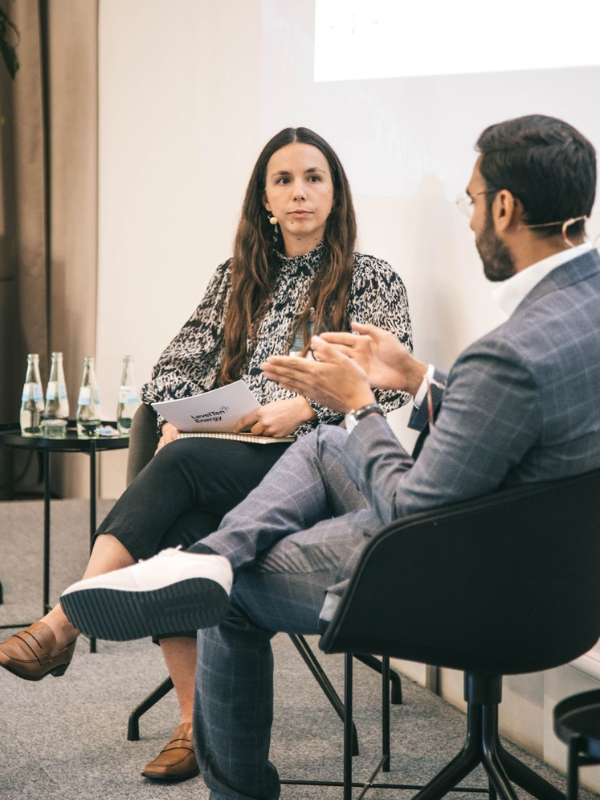
One of the most anticipated sessions at the Forum featured MaxSolar, who recently partnered with LevelTen to bring a first-of-its-kind hybrid PPA to market. Anwar Darwich, PPA Origination Director at MaxSolar, explained that extreme market volatility and waning demand for simple pay-as-produced solar PPAs pushed them to innovate.
Running a PPA Auction for their hybrid project with LevelTen allowed them to leverage a well-structured and transaction-driven process through LevelTen's platform. This provided valuable analytics and broad market outreach, essential for educating buyers on the benefits of these novel products. Crucially, LevelTen was able to define the product offerings made available by MaxSolar’s multi-technology asset, showcasing the options available and the specific buyer needs addressed by each.
The key takeaway for buyers: in a rapidly changing energy market, precision and speed are paramount. LevelTen's live data tools provide real-time PPA price and project settlement values, allowing buyers to quickly assess competitiveness and value. This helps PPA negotiators to avoid missed opportunities and unfavourable outcomes.
In a time of volatility and regulatory uncertainty, markets will reward those who can best harness technology and expertise to streamline PPA transactions. LevelTen equips energy buyers with the tools and insights needed to navigate a turbulent yet opportunity-rich renewable energy landscape.
“It was very helpful to have that well-structured process. You need relevant platform expertise that can enable that... It becomes an added value to have that third party at the table, that does this educational work for me and also for the buyers because, at the end of the day, that’s the purpose of an auction – to create the transaction.” Anwar Darwich, Commercial Director, PPA Origination at MaxSolar
2. PPA deals are being made – but new market participants face obstacles.
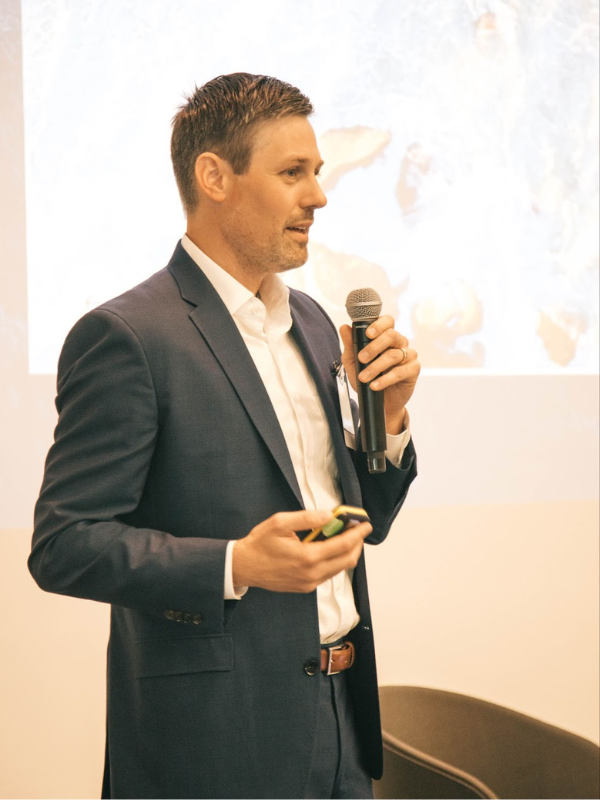
Rob Collier, LevelTen's Senior Vice President of Marketplaces, ran attendees through some of the key trends in European renewable energy procurement from the previous 12 months. He highlighted 2024 as a monumental year for the industry and for LevelTen's platform, with over 940 unique projects submitting to RFPs, generating more than 2,400 unique price offers. This activity culminated in 28 PPAs closed in Europe alone, nearly half of LevelTen's global total.
Collier noted a concentration of activity among large, experienced buyers who rapidly closed transactions, while smaller or less experienced buyers often found themselves on the sidelines due to increasing market complexities – something LevelTen is working to address. He stressed that, while PPA prices have seen a welcome stabilisation and flattening after peaking in 2022-2023, prices only tell "half of the story".
The challenges buyers face include:
- Increased deal complexity and risk. Factors like negative pricing, price cannibalisation, and contractual intricacies are adding layers of risk to transactions.
- Constrained project supply. Siting challenges, permitting difficulties, and grid connection bottlenecks are limiting the availability of new projects.
- Surging buyer demand. Despite supply constraints, demand from larger buyers continues to rise, increasing competition for available projects.
“We're seeing siting challenges, we're seeing permitting difficulties, interconnection, grid connection, bottlenecks. All of these things are putting downward pressure on project supply. Meanwhile, for the largest buyers that are still able to transact, demand is surging. And so while supply is being constrained, overall demand is going up – putting more challenges on those smaller buyers trying to break into the market.” Rob Collier, Marketplaces Senior VP at LevelTen Energy
3. As negative prices persist, PPA dealmakers are rethinking risk allocation.

The Forum heavily emphasised the growing frequency of negative pricing across Europe, which is fundamentally changing market attitudes towards PPA structures.
This environment is creating a "gravitational pull" towards hybrid and storage solutions. These innovative structures offer vital risk mitigation and hedging against market volatility, while also addressing the critical need for grid infrastructure improvements and flexibility to integrate more renewables. Policy and regulation at the EU level are actively supporting these solutions as a path toward greater renewables integration and grid stability.
What’s more, contractual structures within PPAs are emerging to better balance risk allocation between buyer and seller. The traditional "pay-as-produced" PPA is giving way to demand for:
- Structured and shaped products. Buyers seek products that align with their consumption profiles, optimise energy arbitrage, or provide a downside hedge against price volatility.
- Stricter contractual terms. Contractual clauses like market price floors, non-settlement thresholds and deemed production compensation are being finely tuned to better balance negative price risk between both parties.
- GO replacement. As negative prices force curtailment, PPA counterparties are seeking new ways to keep settlement online and minimise volume risk for the offtaker.
“In a PPA structure, it's not possible to mitigate the risk itself. It's rather a question of how to find a fair share of dividing the risk between the parties.” Tim Steinert, Senior Manager at Enervis
4. Yes, there is a faster way to sign PPAs.
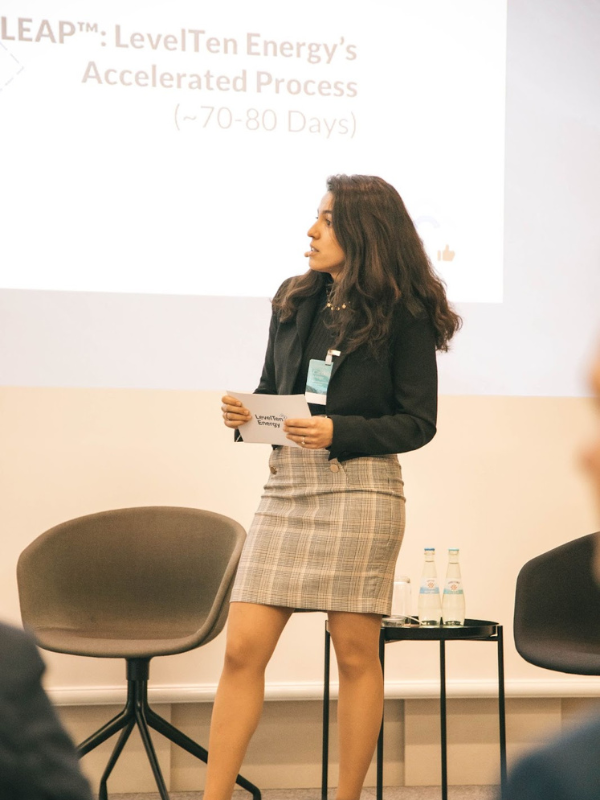
In the afternoon, delegates took a deep dive into LevelTen Energy's Accelerated Process (LEAP), with Platform Sales Director Candela Monge.
Monge explained how LEAP is shaking up the PPA procurement process for energy buyers, making it faster and more efficient to close deals. Comparing PPA contracts to the complexities of wedding planning, she emphasised how buyers often face a "chaos" of disparate offers, making comparisons and decision-making arduous and time-consuming. LEAP offers a streamlined, digitalised, and largely automated solution designed to bring clarity and efficiency to this process.
It achieves this by:
- Tailored procurement: The process is easily customised to specific buyer needs, using simplified PPA language from the outset. This pre-tunes PPA terms to align with buyer requirements, rather than introducing them later in negotiations.
- Seller flexibility: While streamlining, LEAP also ensures sellers have flexibility to adapt terms and manage project-specific risks, providing options that mitigate common PPA conflicts such as availability warranties, security, and negative pricing.
The impact of LEAP is substantial:
- 5x faster procurement. Deals are executed significantly quicker, reducing the PPA signing timeline from over 350 days in traditional RFPs to an impressive 70-80 days. This translates directly to reduced opportunity costs for all parties.
- Increased offers and value. Buyers receive 56% more offers with LEAP, leading to better value. On average, buyers achieved prices that were $5/MWh lower than transactions outside the platform, translating to millions in savings.
Monge emphasised that, in today's market conditions, clarity is a true competitive advantage, and LEAP is designed to provide just that.
“Using LEAP, buyers were able to receive 56% more offers than traditional RFPs and also get more value out of them. We compared the prices that those buyers were getting outside of LevelTen using traditional processes with the prices they closed with the LEAP process. On average, with LEAP they improved the price by $5 per megawatt hour compared to transactions they pursued outside of the platform.” Candela Monge, Platform Sales Director at LevelTen Energy
LevelTen is the leading provider of transaction infrastructure for the clean energy transition, connecting buyers, sellers, and financiers through dynamic marketplaces, data-driven insights, and automated analytics.
Interested in exploring how advanced PPA procurement strategies can benefit your organisation? Contact info@leveltenenergy.com to learn more about our platform and solutions.
Photos: Elena Panizza

.jpg)
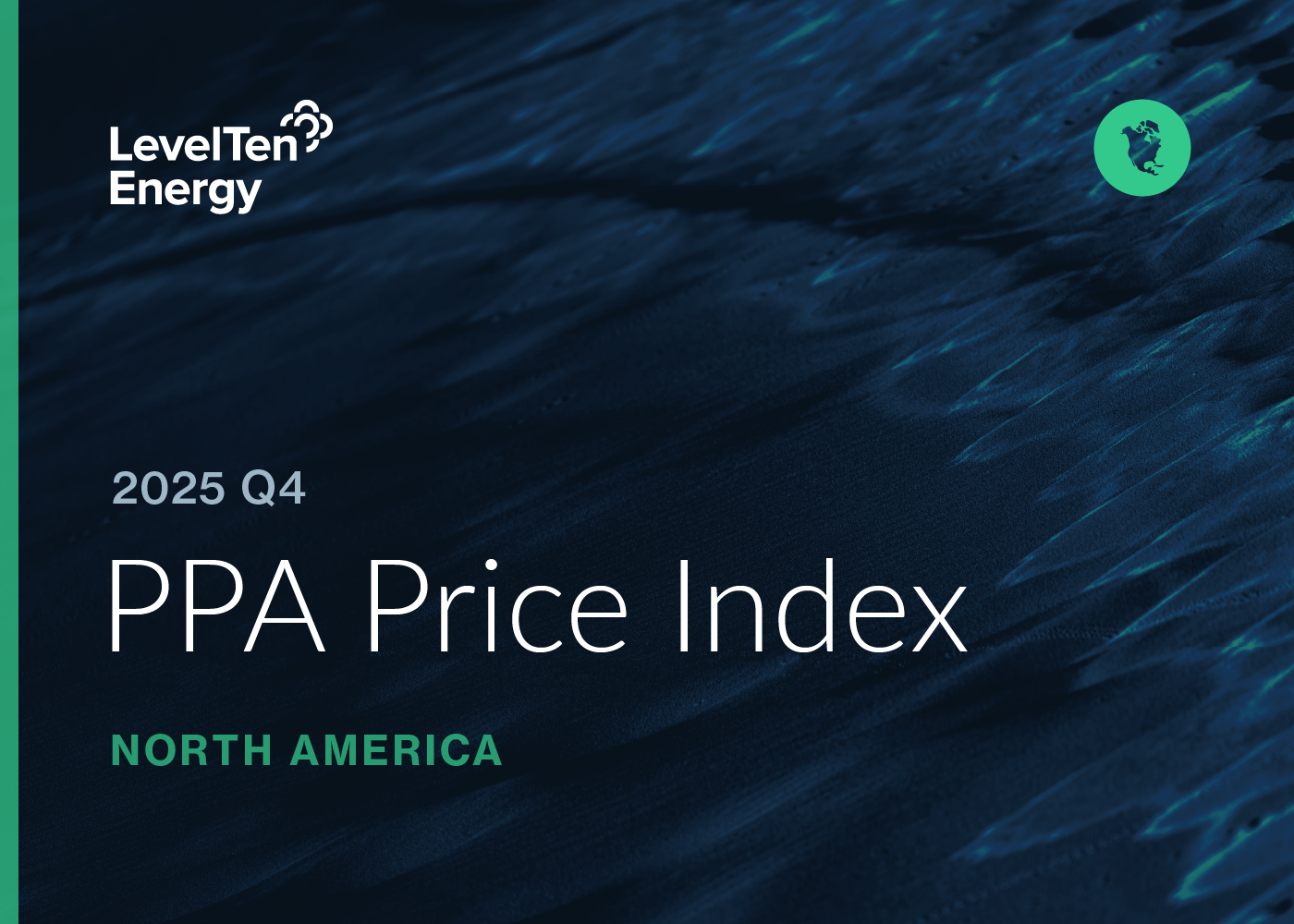
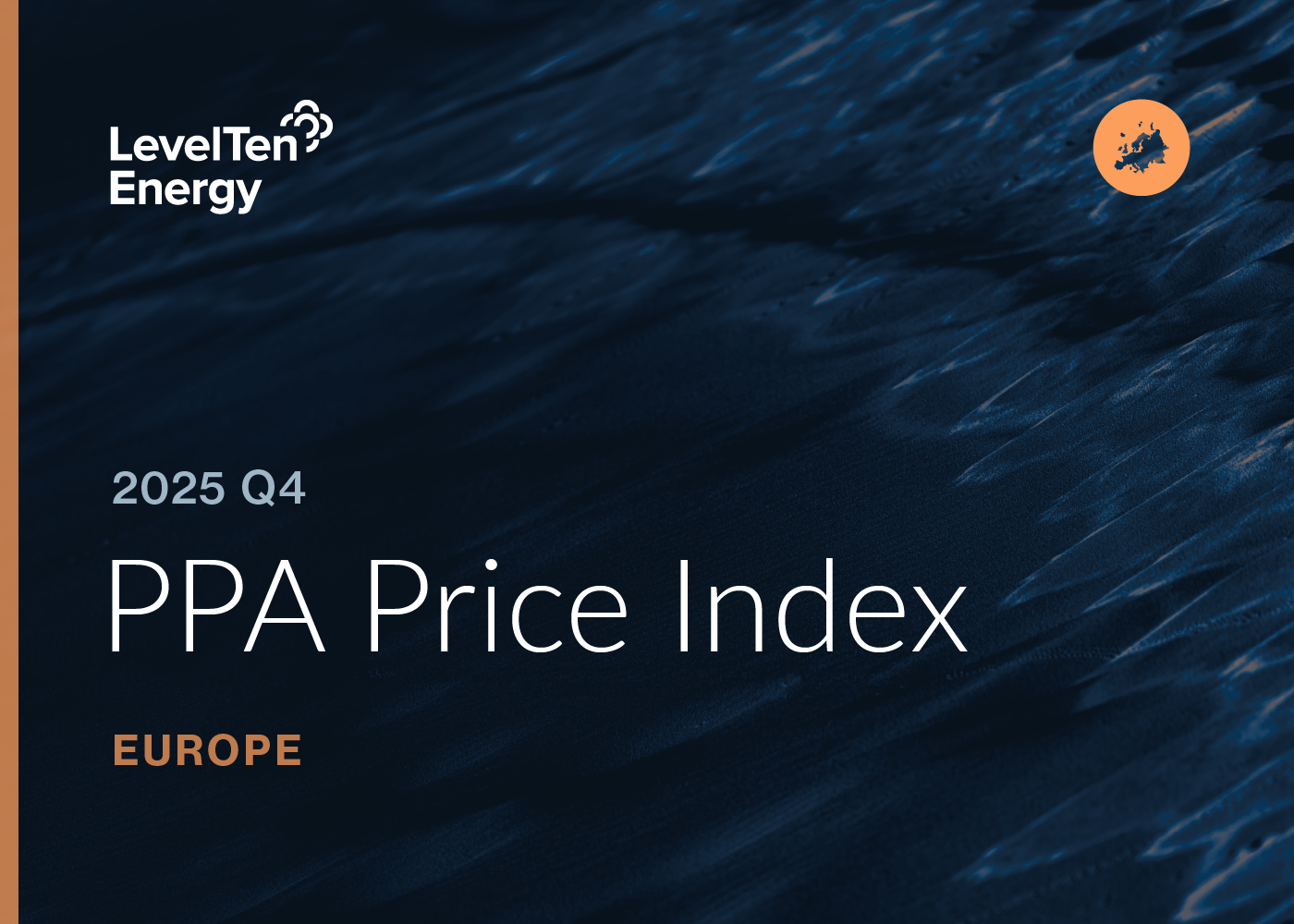
.png)

